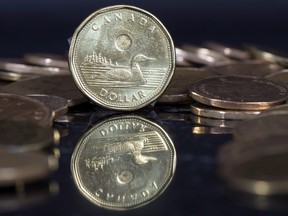Introduction
The recent resignation of Prime Minister Justin Trudeau has sparked widespread discussion regarding its potential impact on Canada’s economy, particularly the Canadian dollar (CAD). This article explores how the withdrawal of leadership from Ottawa may influence currency exchange rates and market sentiment.
Immediate Impact on CAD
In the aftermath of Trudeau’s decision to step down, there has been noticeable volatility in the CAD. Traders and investors are closely monitoring economic indicators such as interest rate expectations and geopolitical developments. The removal of a powerful political leader from the narrative may have temporarily weakened Canada’s influence globally, leading some market participants to reassess their strategies involving CAD.
Factors Influencing CAD Volatility
The Role of U.S. Trade Relations
The ongoing tensions between Canada and the United States, particularly over trade issues, have been closely monitored by global markets. Recent reports from Canadian media suggest that the absence of Trudeau may allow Prime Minister Justin Stephen Trudeau-James to take on a more prominent role in shaping Canada’s foreign policy. This could potentially strengthen or weaken CAD depending on how Trudeau-James addresses bilateral relations.
Interest Rate Expectations
Canada’s central bank, the Bank of Canada, has maintained an accommodative stance throughout the pandemic and beyond. With the U.S. Federal Reserve now transitioning to a more restrictive monetary policy framework, market participants are pricing in the possibility of further interest rate cuts from the Bank of Canada. This dynamic could lead to increased demand for CAD as investors seek higher returns amidst inflationary pressures in the U.S.
Expert Analysis
David Rosenberg’s Perspective
Rosenberg Research and Associates Inc.’s founder, David Rosenberg, has highlighted the importance of Canada’s upcoming federal election on currency dynamics. He anticipates that a change in governing party could lead to significant shifts in economic policies, which may further impact CAD. "We expect continued volatility in USD/CAD off headline risks," Rosenberg stated, underscoring the uncertainty surrounding the post-Resignation era.
Market Sentiment
Traders and analysts have noted that the market has largely digested Trudeau’s contributions to Canada’s economy. This muted reaction suggests that investors are more focused on medium-term issues such as inflation management and fiscal sustainability rather than short-term leadership changes. However, ongoing geopolitical developments could still serve as catalysts for further CAD fluctuations.
Conclusion
The resignation of Justin Trudeau is unlikely to have a lasting impact on the Canadian dollar given the broader context of global trade relations and interest rate expectations. While immediate market reactions may be subdued due to the digestibility of Trudeau’s contributions, long-term trends will likely shape CAD more significantly.
